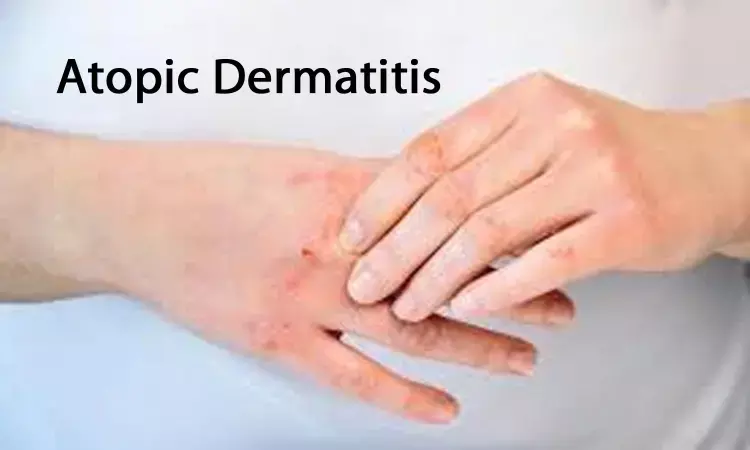- Home
- Medical news & Guidelines
- Anesthesiology
- Cardiology and CTVS
- Critical Care
- Dentistry
- Dermatology
- Diabetes and Endocrinology
- ENT
- Gastroenterology
- Medicine
- Nephrology
- Neurology
- Obstretics-Gynaecology
- Oncology
- Ophthalmology
- Orthopaedics
- Pediatrics-Neonatology
- Psychiatry
- Pulmonology
- Radiology
- Surgery
- Urology
- Laboratory Medicine
- Diet
- Nursing
- Paramedical
- Physiotherapy
- Health news
- Fact Check
- Bone Health Fact Check
- Brain Health Fact Check
- Cancer Related Fact Check
- Child Care Fact Check
- Dental and oral health fact check
- Diabetes and metabolic health fact check
- Diet and Nutrition Fact Check
- Eye and ENT Care Fact Check
- Fitness fact check
- Gut health fact check
- Heart health fact check
- Kidney health fact check
- Medical education fact check
- Men's health fact check
- Respiratory fact check
- Skin and hair care fact check
- Vaccine and Immunization fact check
- Women's health fact check
- AYUSH
- State News
- Andaman and Nicobar Islands
- Andhra Pradesh
- Arunachal Pradesh
- Assam
- Bihar
- Chandigarh
- Chattisgarh
- Dadra and Nagar Haveli
- Daman and Diu
- Delhi
- Goa
- Gujarat
- Haryana
- Himachal Pradesh
- Jammu & Kashmir
- Jharkhand
- Karnataka
- Kerala
- Ladakh
- Lakshadweep
- Madhya Pradesh
- Maharashtra
- Manipur
- Meghalaya
- Mizoram
- Nagaland
- Odisha
- Puducherry
- Punjab
- Rajasthan
- Sikkim
- Tamil Nadu
- Telangana
- Tripura
- Uttar Pradesh
- Uttrakhand
- West Bengal
- Medical Education
- Industry
Subcutaneous nemolizumab improves itching in atopic dermatitis patients: NEJM

Japan: Subcutaneous nemolizumab plus topical agents versus placebo plus topical agents helps in a greater reduction of itching in patients with atopic dermatitis (AD), suggests a recent study published in the New England Journal of Medicine.
Nemolizumab is a humanized monoclonal antibody against interleukin-31 receptor A which is administered subcutaneously. Interleukin-31 receptor A is involved in inflammation and pruritus (itching). Nemolizumab was shown to lessen the severity of AD in phase 2 studies but has not been well studied in patients who are also using topical agents.
Kenji Kabashima, the department of dermatology at Kyoto University, Japan, and colleagues conducted a 16-week, double-blind, phase 3 trial. Japanese patients with atopic dermatitis and moderate-to-severe pruritus and an inadequate response to topical agents were randomly assigned in a ratio of 2:1 to receive subcutaneous nemolizumab (60 mg) (n=143) or placebo (n=72) every 4 weeks until week 16, with concomitant topical agents.
The primary endpoint was the mean percent change in the visual-analogue scale (VAS) score for pruritus (range, 0 to 100, with higher scores indicating worse pruritus) from baseline to week 16.
Key findings of the study include:
- The median VAS score for pruritus at baseline was 75. At week 16, the mean percent change in the VAS score was −42.8% in the nemolizumab group and −21.4% in the placebo group.
- The mean percent change in the EASI score was −45.9% with nemolizumab and −33.2% with placebo.
- The percentage of patients with a DLQI score of 4 or less was 40% in the nemolizumab group and 22% in the placebo group; the percentage of patients with an ISI score of 7 or less was 55% and 21%, respectively.
- The incidence of injection-related reactions was 8% with nemolizumab and 3% with placebo.
Dr Kamal Kant Kohli-MBBS, DTCD- a chest specialist with more than 30 years of practice and a flair for writing clinical articles, Dr Kamal Kant Kohli joined Medical Dialogues as a Chief Editor of Medical News. Besides writing articles, as an editor, he proofreads and verifies all the medical content published on Medical Dialogues including those coming from journals, studies,medical conferences,guidelines etc. Email: drkohli@medicaldialogues.in. Contact no. 011-43720751


